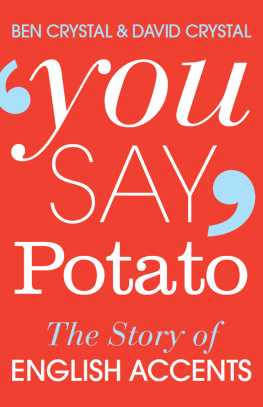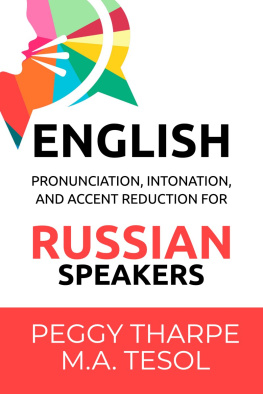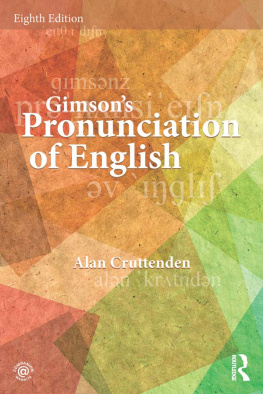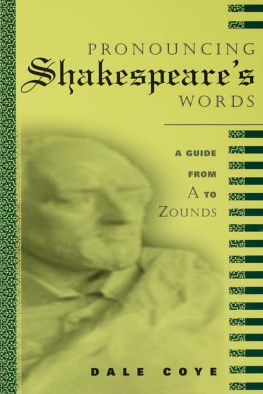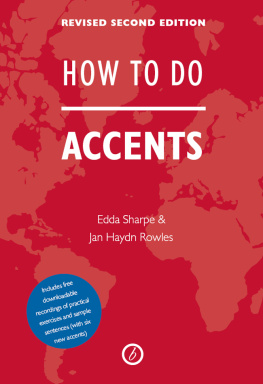CONTENTS
For Emma P, Jon B, and Cathryn S, without whom...
And for Momma C/Hilary
PROLOGUE: AT HOME WITH THE CRYSTALS
BEN I must have been around sixteen years old when I walked into the house I grew up in and unwittingly dropped a linguistic bombshell.
As I strolled into the kitchen, slung my school bag down and began to make a cup of tea, my father immediately stopped what he was doing, looked up, and raised his (not inconsiderable) eyebrows.
I checked about me. There was no original copy of Johnsons Dictionary on my person, nor did I have one of the fabulously rare original Shakespeare First Folios in my satchel. I was not wearing my To split, or not to split, that is the infinitive... T-shirt; I hadnt left the milk out, or the tea-bag in.
Clearly, then, I must have said something interesting.
Dad frowned, like a baffled but not unkindly owl, eyebrows still hovering a few inches above his spectacles. He leaned forward excitedly, as an entomologist might if a beetle had suddenly rolled over onto its back and held aloft a tiny sign which read tickle my tummy.
D What did you say, Ben?
I shifted uncomfortably as I tried to recall what Id muttered that had piqued his interest. This, it should be noted, was not a new phenomenon. Over the previous couple of years, I had, it seemed, returned to the house with an assortment of linguistic fascinations, sweetmeats, and chew-toys for my father.
Wicked meaning fantastic dominated one family meal. Dark as a negative happening compassed an entire weekend. An experiment (when I was twelve) over Sunday lunch with a word whose meaning I wasnt entirely sure of (git) quickly brought me to the realization that, whatever it meant, it was not complimentary.
I thought back to what Id said when I walked in the door, and ran over it again in my head. I couldnt think what it might be. So I mumbled the whole phrase once more, and, of course, foolishly fell down the rabbit hole.
I said, I hate my new school schedule. Its all doubles, and Frau Schmidt, if thats her real name, which I doubt
D Schedule?
I blinked.
Yeah. My new schedule.
D Schedule?
Yeah. Schedule.
D Schedule.
Daaaad. Schedule.
This was like taking some sort of lie-detector test, or being grilled by Scientologists. The repetitiveness was beginning to numb my brain.
D You mean...
And here the shark showed its teeth.
D Shhhhedule?
Yeah... I said cautiously, aware of the ground starting to slip under my feet. S what I said. Schedule, I mumbled.
D Ah no, ha, you said skedule.
Yeah. Skedule, shedule, Shrewsberry, Shrowsberry, sconn, scown. Whats the diff?
D The diff, my boy, he said, getting up to pour me a rather adult-looking glass of wine, is America.
And then I sat down, and we began talking about why.
DAVID I have to say it did surprise me when I first heard Ben say skedule. And I was also surprised to realize that he didnt realize where his pronunciation had come from. It wasnt like the two pronunciations of scone or the two of Shrewsbury. They have histories arising out of the way different accents have developed in Britain. No, this was, indeed, one of the first signs that American English pronunciation was beginning to have a long-term impact on British English accents. Because it wasnt just Ben who was saying this. All his friends were too.
And, eventually, the rest of my four children. There was an interesting transitional period, somewhere in the early 1990s, when the two eldest ones (a decade older than Ben) were saying shedule, and the two youngest ones were saying skedule. But they all say skedule now.
As do I when Im talking to them. And when Im not, I continue to say shedule, on the whole. So I have two pronunciations of this word in my repertoire these days. My personal speech is a sign of transitional times: the Old Pronunciation World meeting the New.
Why the early 1990s? In fact, people had begun to use the American pronunciation of this word earlier, but it was sporadic and idiosyncratic, reflecting individual encounters with American English. Any Brits who had spent some time in the US, and who enjoyed the experience, would probably come back with their accent modified in some way. But Ben had never been to the US, and was illustrating something that was affecting a whole generation. What caused that?
In a word, TV. And especially sitcom TV. Just think of the way in which American sitcoms arrived on British television from the 1950s onwards. The oldest readers of this book will remember I Love Lucy, first aired in 1951. Slightly less old readers will have happy memories of The Munsters, The Monkees, and The Addams Family, all from the sixties. Then the sitcom numbers rapidly grew. Among the most popular in the seventies were The Brady Bunch and M*A*S*H. In the eighties, The Cosby Show and Cheers. As Ben became a teenager, he watched several of these. It was the TV era. The Internet was still a decade away. And then, at the very end of the eighties, the Really Big One: The Simpsons.
But actually, Bens skedule couldnt have come from The Simpsons, as if the online scripts are to be trusted none of the characters use that particular word at all in the episodes aired in the first few years of the show. But it does turn up in other series that he was watching at the beginning of the 1990s, such as Northern Exposure. The pilot episode in 1990 sees Joel, a New York doctor newly arrived in a town in Alaska, wanting to leave by bus. Ruth-Ann asks him, Would you like a schedule? And we hear the word again a few seconds later when Joel tries to escape from his waiting patients: I have a bus schedule, he says. Sked- both times.
Schedule, of course, is just one of several American pronunciations that have spread around the English-speaking world. Think of anti- rhyming with tie rather than tea, or ate rhyming with late rather than let. Think of the second syllable of tomato sounding like mate rather than maht, or the first syllable of progress with a short o (as in hot) rather than a long one (as in oh). Then there are all those words where the stress has shifted from the second syllable to the first, as with address, magazine and research, or the first to the second, as with garage and frontier (as in Space the Final Frontier).
With Star Trek, Friends,hugely successful shows following, the spread of American usages among young people was inevitable. But America doesnt explain the whole story of modern English pronunciation. In fact, by the time you get to the end of this book, youll see that it accounts for only a small part of the extraordinary soundscape that we call English accents.
INTRODUCTION: THE SOUND OF BLUE
BEN Flash forward ten years. This is how it is when youre recording a voice-over for a TV or radio commercial: you sit in a small, soundproofed booth. Theres water, sometimes a hot drink. A selection of branded pens and pencils. A script, a microphone, perhaps some ambient lighting. A book stand. And a window.
Through the window, there are lots of people. Quite close to the window is the engineer, who usually remains silent during the session, trying not to roll his eyes. Behind the engineer, on couches, chairs, or just stalking around, are the clients, the marketing department, the director, exec producers, and the advertising company project leaders (all surrounded by magazines, fruit, biscuits, or a quirky jar of sweets, and legion empty caffeine delivery devices).

